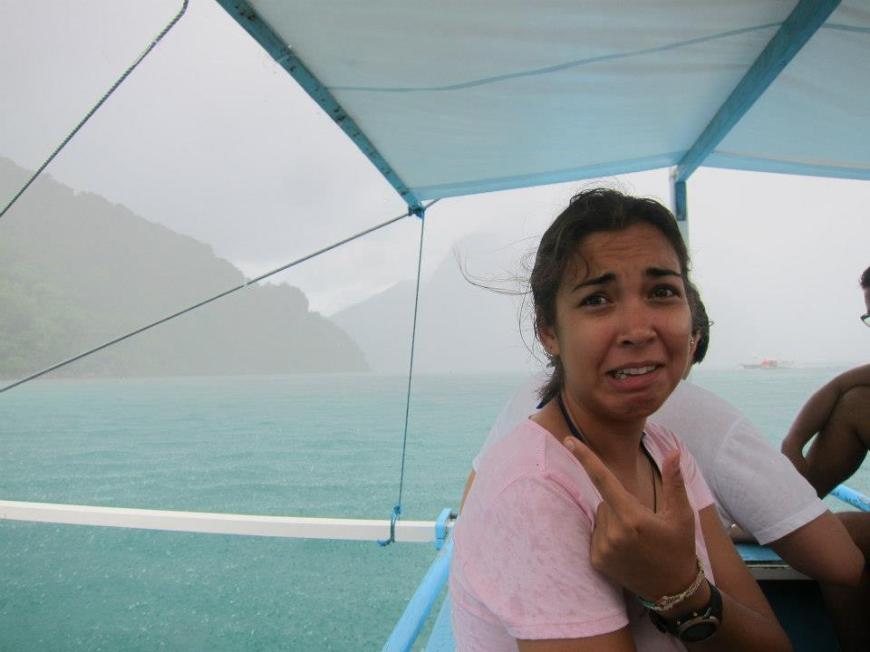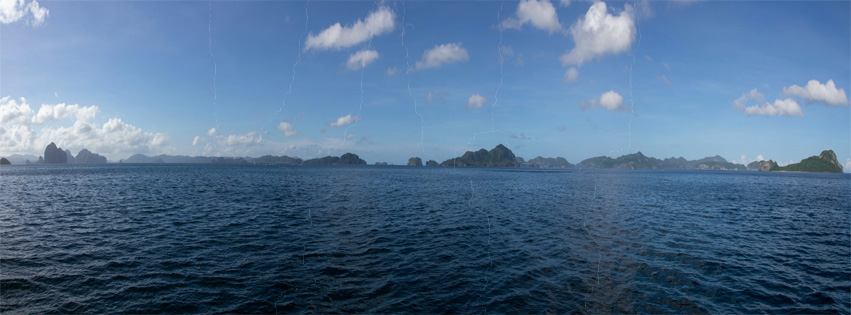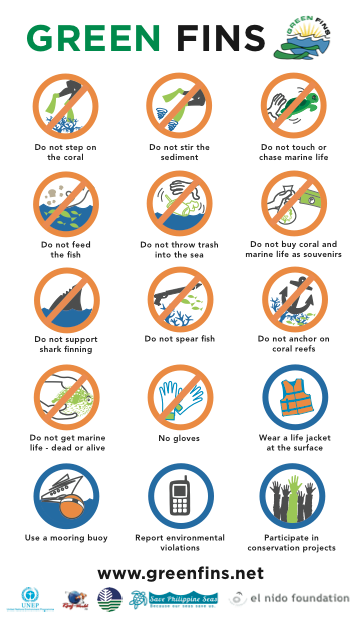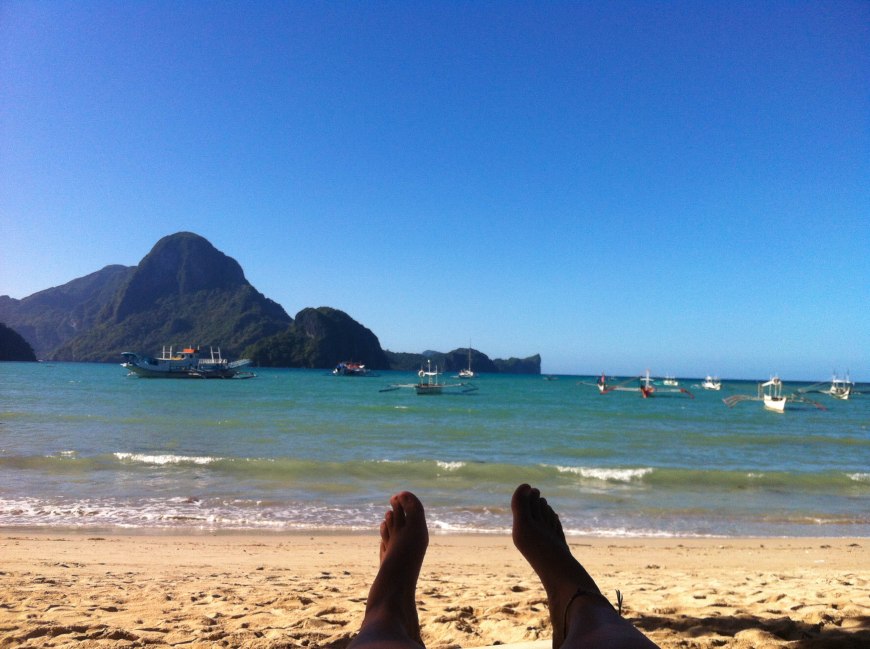Almost my entire professional life has been working in South East Asia. With it’s vibrant and colourful cultures, it’s extraordinary food and breathtaking scenery, not to mention warm and hospitable people, I can say I am well and truly addicted. Last year I moved to Philippines, the motherland (i.e. land of my mother), and I haven’t looked back. I’ve jumped around the country for various projects, but by far my most rewarding experience so far was working in El Nido, Palawan.
Palawan, I had been told, is not real Philippines. Or rather, not typical. It sits alone in the middle of the South China Sea and shares it’s geographic history with Borneo, rather than the islands of the Philippines. The people, I heard, were different. Living in bona fide paradise, they are environmentally aware. Shock and horror. They are? They care? Really?
Really. One of the many gems of the Philippine islands, Palawan is breathtaking almost everywhere you look. And many long-established projects have been working, educating and building local capacity for environmental protection. With some of the only remaining rainforest in the country, and an enormously rich marine biodiversity, I was extremely happy to hear this. That happiness did not compare to that which I felt after my work there.
I was ‘posted’ in El Nido, with three volunteers, to oversee the initiation of the Green Fins project in conjunction with the prestigious, and rightly so, NGO – The El Nido Foundation. We were introducing a system of assessing the environmental standards of the diving and snorkeling industries and simultaneously running the education side of the project to improve said standards. Of course, we had to experience the diving and snorkeling for ourselves – an exciting prospect until we got on the boat and the heavens opened up. It did, however, get better!
One of the most rewarding aspects of my time there was the stakeholder consultations. Wandering around time talking to dive center managers, guides, snorkel tour operators and shopkeepers about their perceptions of threats to the marine environment. Despite tourism being one of the biggest industries in El Nido, almost every stakeholder named tourists as a threat. Tourists who throw trash, who trample on the reef. The catch 22 of ‘ecotourism’ – without proper education, tourists come and destroy the very natural resources they have come to enjoy. And these stakeholders recognized this. I heard the golden statement so many times I was giddy:
“We need to protect the environment for our business and our future”
But after this revelation comes the hard part. To actually effect protection. To stop tourists, who are going to tip you for being friendly and hospitable, from being destructive. Would you tip a snorkel guide for correcting you standing on a piece of coral? You really should. Because they think you won’t.
It was liberating, working somewhere with a strong baseline knowledge. Where you didn’t have to start by getting people to recognize that protection is needed. Almost all the people we talked to had worked, at some point in their lives, for a suite of resorts that were set up with a strong environmental ethos. These resorts provided regular environmental training, and the result? A community with a deep and comprehensive understanding of the importance of the marine environment. Education is an exceptional tool.
It means that there is less crap on the beach. It means that you hardly see any rubbish stuck on the reef. It means that fishermen respect marine sanctuaries because they understand how they will benefit from them in the future. It means that people actively use mooring buoys. It means an keeping an exceptionally beautiful place beautiful.
Over the six weeks we spent there we worked most closely with snorkel tour operators. One of the volunteers held a workshop for the guides, the owners, the boat captains… any one who was involved in the industry, to introduce the project, but also to tackle some issues that were immediately evident. We worked together to identify threats to reefs and what each individual, in their role in the industry, could do to help.
One of the most pressing issues was the daily fish feeding at one snorkel site. Sold as part of the tour, it is a highlight for many people. Unfortunately not for the fish. A constant provisioning of food is extremely detrimental to the fish, but also to the general health of the ecosystem. Bread, or sausages, or leftover predatory fish from lunch is not a natural food of reef fish, and can cause digestive issues. A reliance on daily provisioning means fish are not eating what they naturally eat – they are not pulling their weight in their role on the ecosystem. Many reef fish eat the algae that competes with coral for space, or the larvae of the infamous Crown-of-thorns. This message was perhaps the most successful output of the workshops. The Municipal Tourism Officer came to us the next day and told us that some of the attendee’s had told off other operators feeding the fish that day, saying that feeding was bad and they should come to the workshop. An amazing feeling washed over all of us. Rarely do you receive feedback from education work, and it is even more infrequent to hear such positive feedback so rapidly.
The workshop, and those involved played their role in effecting this change, but it would not have been possible without the snorkel operators attitude towards the environment. This success heralds the positive relationship the local community in El Nido has with their environment. That was in place long before we got there.
If they are doing their part, you as a tourist have an obligation to do yours. I beg you to make small changes in your expectations of your tourist experience. If you are tired, rest on your life jacket, not the coral bommy which is alive and has been growing for decades. If you have trash, ask for a bin. If you smoke, find an ashtray. If your guide tries to dispense this information to you, respect it, don’t fight it. And if you see this poster – pay attention!
There is a certain magic about El Nido. It draws masses of tourists. Let’s not be a part of the process that destroys a communities livelihood and ruins a truly outstanding aesthetic beauty. Encourage actions that protect the environment. Tip a guide who corrects you, or sets a good example, or points you towards the bin or ashtray. Compliment a boat captain on using a mooring buoy. Choose an operator that has a clear environmental policy, and tell your friends and family to do the same. It’s not hard, and the response you will get is heartwarming. Be part of better tourism, play your role in changing an industry for the better. Like those of us who work in Conservation, you might not be around to see the results, but rest assured they are there.




Wow! You must be really loving what you do.
Thank God for you people. You make the 6 hour land travel to El Nido worth the visit! 🙂
sam, you are awesome.. i swear to follow all the rules
Dear Samatha,
What a great experience! I admire your vision towards tourism. Like you, I’m also passionate about conserving the environment and I would love to be involved in protecting El Nido and her suroundings. As part of my tourism studies I need to do a 20 week intership. Do you know any organisations that work with interns? Any help will be highly appreciated:-)
Regards,
Daniël